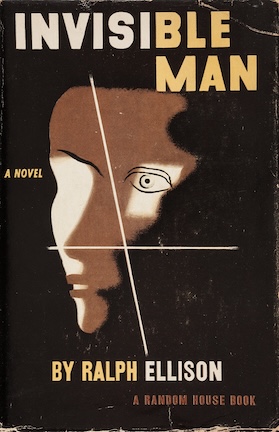I was on the second floor of a second-hand store checking its supply of used books. Ten books for a buck, the sign said. In the E section, I found a copy of Ralph Ellison’s Invisible Man. Hard cover circa 1952. The book jacket wasn’t pristine, but I didn’t care. It is worth a lot more than ten cents.
Inside the book I found a folded piece of paper that said “National Book Award for 1953. Fiction. Judges: Saul Bellow, Martha Foley, Irving Howe, Howard Mumford Jones, and Alfred Kazin.” I suppose it has been with the book since whoever bought it new back then.
I had been wanting a vintage copy of the Invisible Man for a while because this book has so much personal value to me.
In the second semester of my junior year at then-Bridgewater State College, now a full-fledged university, I took a Black Literature course with Dr. Barbara Chellis. She was a dynamic professor her students couldn’t pin down.
Dr. Chellis also taught an American Lit. course I took. One year she would say Emily Dickinson was a hack. Next year, when her students were ready to echo that theory, she praised Dickinson as a private poet who never expected to be published.
When we read The Scarlett Letter, Dr. Chellis cut her hair monk-short, wore severe clothes and an ornate silver cross. I learned about Poe’s “knowledge is power” and why people write from her.
Dr. Chellis was brilliant and compassionate. One time I was stoned when I took a mid-term exam. Without a lecture, she asked me take it again. I know you can do better, she told me.
That semester, I moved into the same apartment house as Dr. Chellis and her companion, another woman who taught in the history department. They lived on the first floor, and from our kitchen window on the second, I watched them hang out in their yard. My roommate lied to the landlord, telling him we were nurses and not college students.
I remember the day I came home as Dr. Chellis drove her convertible into our driveway. The top was down. She slammed on the brakes, backed up, and glared at me. We got our eviction notice shortly afterward.
But I got her back, sort of. We had a huge, noisy party before we moved out.
And, then there was the presentation I had to do for her Black Lit. class. I chose to speak on Ralph Ellison’s theme of invisibility in his Invisible Man, that nobody can see who we really are including a professor who had me evicted from my apartment. I recorded my speech ahead of time and played the recording it in front of the class so it would seem I was invisible when I spoke.
Dr. Chellis gave me an A for the presentation.
The last time I saw Dr. Chellis was when I went to her office to get my final grade, another A. She was cordial and encouraging. She asked me why I no longer dated a popular student she liked. I simply said he broke up with me. The truth was he was gay and didn’t want to love a woman.
I went to Europe that summer. When I returned, I heard Dr. Chellis had been diagnosed with a brain tumor, which later killed her. It seemed terribly unfair.
Here is a quote from the Invisible Man: “All my life I had been looking for something, and everywhere I turned someone tried to tell me what it was.” Thank you Dr. Chellis.

